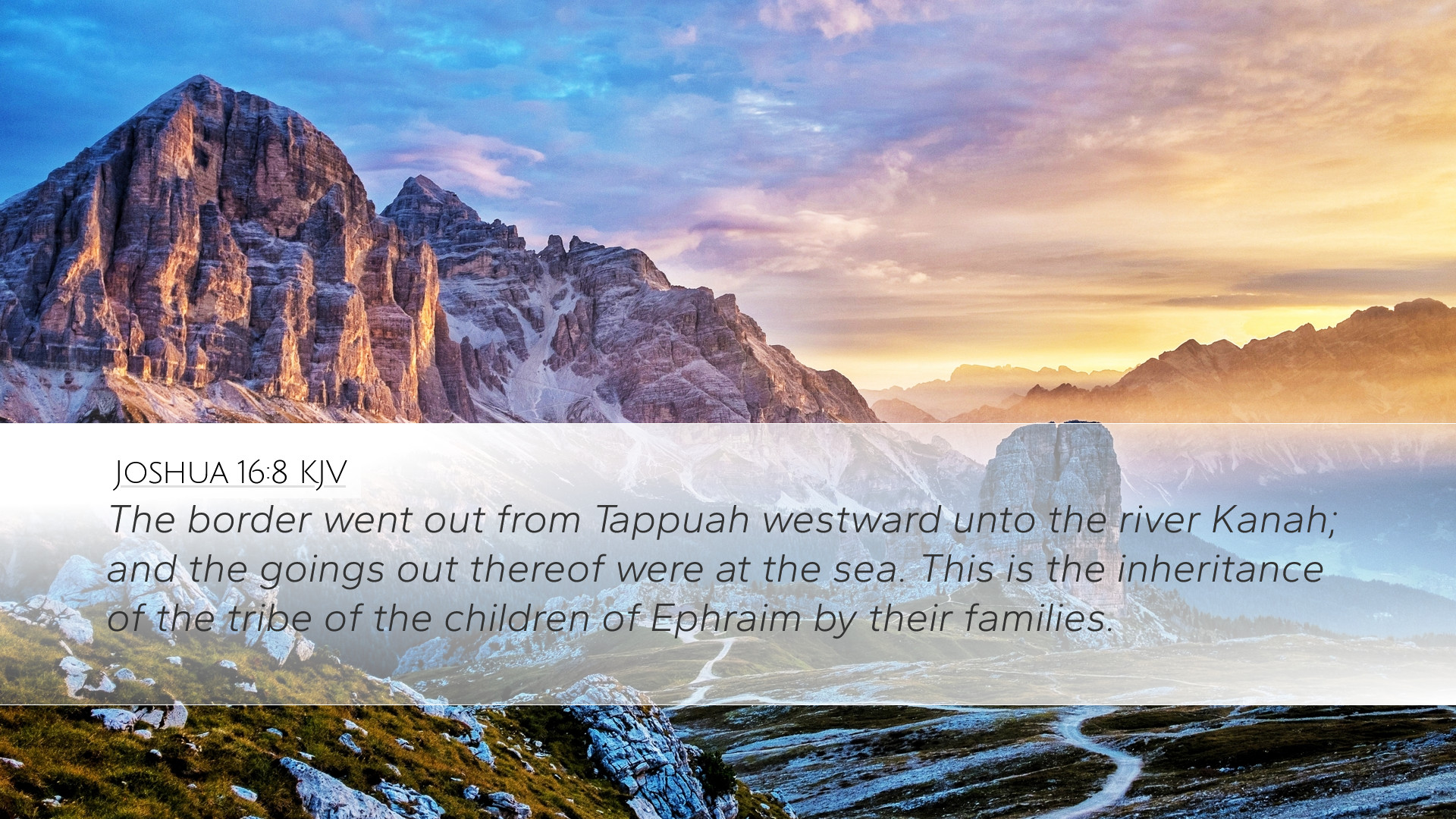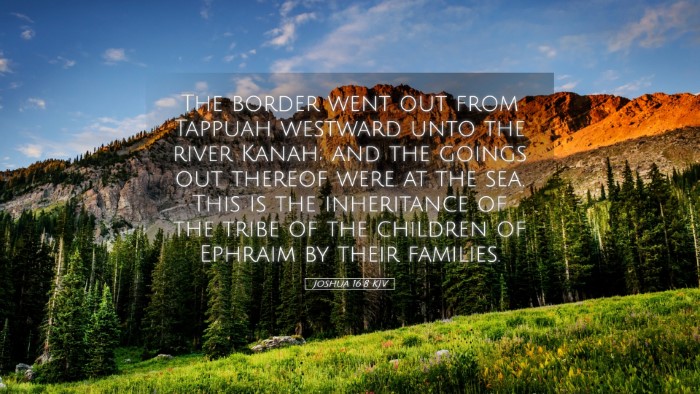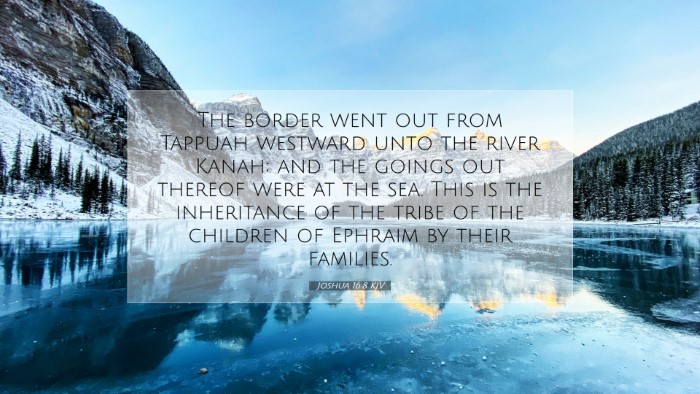Old Testament
Genesis Exodus Leviticus Numbers Deuteronomy Joshua Judges Ruth 1 Samuel 2 Samuel 1 Kings 2 Kings 1 Chronicles 2 Chronicles Ezra Nehemiah Esther Job Psalms Proverbs Ecclesiastes Song of Solomon Isaiah Jeremiah Lamentations Ezekiel Daniel Hosea Joel Amos Obadiah Jonah Micah Nahum Habakkuk Zephaniah Haggai Zechariah MalachiJoshua 16:8
Joshua 16:8 KJV
The border went out from Tappuah westward unto the river Kanah; and the goings out thereof were at the sea. This is the inheritance of the tribe of the children of Ephraim by their families.
Joshua 16:8 Bible Commentary
Commentary on Joshua 16:8
Verse: Joshua 16:8 - "The border went out from Tappuah westward unto the river Kanah; and the goings out thereof were at the sea."
Overview
The verse presented from the book of Joshua details the territorial divisions allotted to the tribe of Ephraim. This text not only serves as an account of geographical boundaries but also reveals theological significance tied to God's covenant and promises to the descendants of Abraham, Isaac, and Jacob. Throughout public domain commentaries, we can discern multiple layers of meaning that speak to both historical context and enduring spiritual truths.
Historical Context
According to Albert Barnes, this passage outlines geographical markers significant to the tribe of Ephraim. The mention of Tappuah signifies a critical urban center, and moving westward towards the river Kanah gives insight into the territorial extent of the Ephraimites. Understanding these land allotments is vital for comprehending the inter-tribal relationships and dynamics during the conquest of Canaan.
Matthew Henry notes that such geographical details were essential not only for the tribes themselves but also for future generations who would need clear guidance regarding their inheritance. The boundaries serve as a reminder of God’s faithfulness in fulfilling His promises, as He directed the Israelites into their designated lands.
Theological Insights
From a theological standpoint, Adam Clarke emphasizes the significance of God's providence in the allocation of land. The Ephraimites received a fertile region which underscores the idea of divine blessing inherent in their inheritance. This allocation illustrates the richness of God's grace, both to the individual tribes and collectively to Israel.
Furthermore, the imagery of "the river Kanah" and the sea symbolizes boundaries not only in a physical sense but also in a spiritual allegory that speaks to the thresholds between the earthly and the divine realms. Just as God established borders for the Israelites, He establishes moral and spiritual boundaries for the lives of believers today.
Lessons for Today
In contemplating Joshua 16:8, modern-day pastors, students, and theologians should reflect on the following lessons:
- Divine Guidance: Just as the Israelites received detailed guidance regarding their land, believers are reminded of the importance of seeking God’s direction in their lives. There is a necessity for prayer and introspection to discern God’s will in personal and communal matters.
- Faithfulness of God: The faithful fulfillment of God's promises in the past serves as a foundation for confidence in His promises today. Believers can draw strength knowing that God will fulfill His plans in their lives and in history.
- Inheritance in Christ: The land of Canaan serves as a metaphor for the spiritual inheritance promised to the followers of Christ. Just like the Israelites were given a physical land, Christians are promised an eternal inheritance in the Kingdom of God.
Conclusion
Joshua 16:8, while a seemingly straightforward geographical description, provides profound insight into the character of God and His dealings with humanity. By studying the commentaries from Matthew Henry, Albert Barnes, and Adam Clarke, one can appreciate the depth of scripture and the relevance it maintains for today’s believers. This verse invites us not only to consider our historical faith but also to engage actively with the promises of God that continue to unfold in our lives and the world around us.


